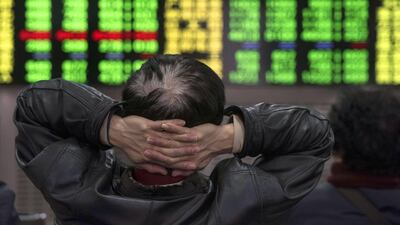The new investment theme for 2017? Resilience.
How did your portfolio perform this year? Are you happy with your returns or are looking for a new investment style? My suggestion is resilience.
Let's not minimise the term just for the sake of a column on investing. Real-life resilience is about gritty stories that get turned into Hollywood films or 10-episode box sets. It's all about plane crash survivors who live for days in the tangled mess of wreckage waiting to be rescued, or rock climbers trapped in narrow crevices who use a dull blade on their own limbs to escape.
It is about mental and physical toughness in the face of an overwhelming instinct that screams capitulation, defeat and failure.
If that sounds a little like your year in the financial markets then, you have my sympathy.
According to JP Morgan research, few investor types have successfully captured the so-called Trump trade. Whether it's for hedge funds, real money managers or retail investors, the market moves since the US elections have been both "big and surprising".
Investors needed to be positioned long on the US dollar, long on US equities and short on emerging markets to cash in.
In fact, 2016 as a whole has been a schizophrenic year and a difficult one for most investors to negotiate. Remember January? It felt like markets were in free-fall. With economists fixated on "secular stagnation" and central banks "still" engaged in keeping interest rates low. Prospects for a year of low single-digit returns appeared baked-in.
But never has the phrase "expect the unexpected" been more relevant - and even more so to investor resilience. There has been something admirable, and yes, resilient about the way markets have dealt with political challenges this year.
In the context of capital markets, resilience this year has been about facing down event risk - Brexit, Donald Trump's election win and the No vote in the Italian referendum. In each case, the market "consensus" argued for a halt to the risk-on trade and equities (the ultimate risk-on trade) to fall in value. The arguments made a lot of sense: the 35-year-long bond bull market is ending; equity valuations are too rich; the Federal Reserve is set to hike interest rates; global debt is too high; inflation is just around the corner . and so on.
I'm not saying these arguments don't matter - at some point they will and we will have the kind of economic scorched earth that will make the global financial crisis of 2008 look like a financial crisis on training wheels. But until then, stiffen that upper lip, pull back the shoulders, puff out your chest. Hold the look. Markets are touching new highs.
So what to do?
The problem is the unexpected is not what it used to be.
Every year Saxo Bank produces its Top 10 outrageous forecasts. The headliner for next year is that China's GDP swells to 8 per cent and the Shanghai Composite hits 5,000. Given that the nuclear codes have just been handed to a man who used to say "you're fired" on reality TV, who am I to say these things won't happen. Maybe Saxo Bank should change the title on their list to "10 things that are moderately unlikely to occur", although that's not as eye-catching.
If you want to run with the Trump trade next year, buy companies that will benefit from the new president's supply-side agenda of tax cuts and deregulation, says CNBC regular Jean Medecin, a member of the investment committee at Carmignac.
Mr Medecin says you need to own oil services groups and other beneficiaries of reflation. He likes Japanese banks on a valuation trade.
But he also has some good advice for the resilient investor - be opportunistic and selective around sector and stock picking. Good risk management means acknowledging markets are increasingly unpredictable and, therefore, consider taking profits early.
Big-bank market strategists are beginning to get more positive on equities next year as they are lured in by new all-time highs in the US. The consensus is shifting to a better year for owners of stocks.
But as Saxo Bank points out: "It is important investors are aware of the range of possibilities outside of the market consensus so they can make informed decisions, even in seemingly unlikely market scenarios."
Best of luck for the markets next year. The resilient investor who understands that not all swans are white should have nothing to fear.
Geoff Cutmore co-anchors CNBC's flagship programme Squawk Box Europe and can be followed on Twitter @GeoffCutmore.
* The National and CNBC are global content sharing partners. This story also appears on CNBC here.
business@thenational.ae
Follow The National's Business section on Twitter

Market analysis: Resilience to pay off for investors
Never has the phrase 'expect the unexpected' been more relevant - and even more so to investor resilience.
Most popular today
